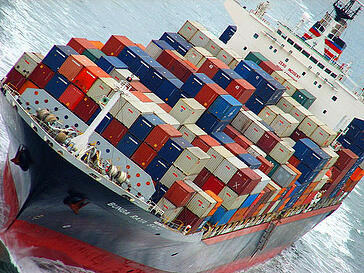2011 was a good year in terms of ocean freight rates for shippers. Carriers have prepared to turn the 2012 freight rates in their favor.

Recent Universal Cargo Management blogs highlighted overcapacity causing lower ocean freight rates and the 2011 trend of falling freight rates from China.
While Maersk said they were poised to outlast their competitors in an overcapacity market, not them or any other carrier is willing to sit and do nothing as prices, and therefore profits, fall on the shipping of cargo containers.
With 2012, we’ll see increases in 20’ and 40’ dry containers, reefers, and more.
Carriers are jumping up prices as the new year hits with fees and/or surcharges.
The New Year’s present shippers get from Maersk is a General Rate Increase (GRI) effective on January 1st. This GRI will add hundreds of dollars to shipping containers from the Far East to the United States.
From Hapag-Lloyd, shippers get a Peak Season Surcharge (PSS) on shipping containers from East Asia to Canada and the United States. Hapag-Lloyd’s PSS runs in the hundreds of dollars and goes into effect January 1st, 2012 as Maersk’s GRI does.
It is not only these two big container shipping lines whose freight rates will be affected by GRI and PSS. All the carriers are launching 2012 with GRIs or PSSs. Some are even imposing both.
Carriers increasing prices as 2012 begins is absolutely no surprise.
We knew as we looked at the downward trend of freight rates in 2011 that those prices would start climbing again because of the volatile nature of the international shipping industry and that carriers would be working on strategies to turn freight rate trends back in their favor.
Don’t let these surcharges and rate increases turn your outlook for 2012 shipping to doom and gloom. GRI and PSS are not magical cures to the overcapacity problem carriers face. There are many factors that keep ocean freight rates volatile in the international shipping industry.
Freight rates will shift back and forth between increasing in favor of the carriers and decreasing in the favor of shippers.
